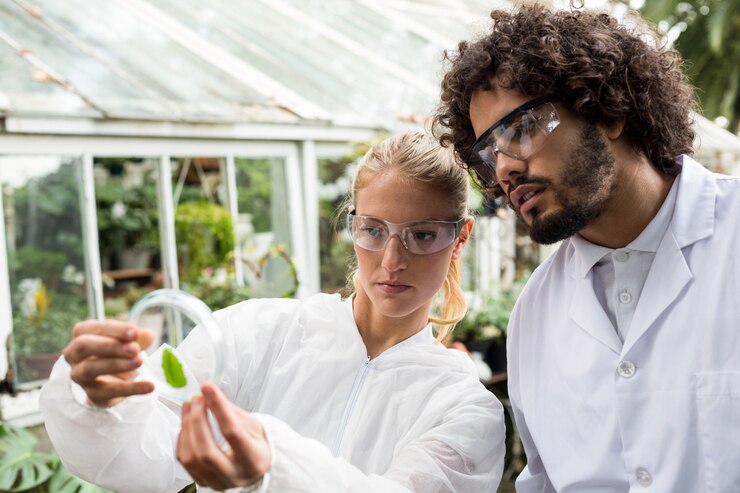Biotechnology has great potential in revolutionizing agroprocessing, offering numerous benefits such as increased agricultural productivity, improved crop quality, and enhanced food processing techniques. Here are some key areas where biotechnology is making an impact:
- Crop Improvement: Biotechnology plays a vital role in crop improvement through genetic engineering and molecular breeding techniques. Scientists can modify crops to exhibit desirable traits such as pest resistance, disease tolerance, drought tolerance, and increased yield. Genetic modification has led to the development of crops like insect-resistant Bt cotton and disease-resistant papaya, which have improved agricultural productivity.
- Microbial Biotechnology: Microorganisms are extensively used in agroprocessing for various purposes. Biotechnology allows for the identification and genetic modification of beneficial microorganisms that can enhance crop growth, improve soil fertility, and protect against pathogens. For example, biofertilizers containing nitrogen-fixing bacteria can replace or reduce the need for chemical fertilizers, reducing environmental impact.
- Enzyme Technology: Enzymes are essential in various agroprocessing industries, including brewing, dairy, baking, and fruit processing. Biotechnology enables the production of specific enzymes through microbial fermentation or genetic engineering. These enzymes can enhance processing efficiency, improve product quality, and reduce the need for chemical additives.
- Functional Foods: Biotechnology has facilitated the development of functional foods that provide additional health benefits beyond basic nutrition. Through genetic engineering, researchers can enhance the nutrient content of crops or introduce bioactive compounds like vitamins, minerals, and antioxidants. This technology offers the potential to address nutritional deficiencies and improve the health benefits of food products.
- Waste Management: Agroprocessing generates a significant amount of waste, which can be a burden on the environment. Biotechnology offers sustainable solutions for waste management by utilizing microbial systems to convert agricultural residues and byproducts into value-added products. This includes bioconversion of waste into biofuels, production of biodegradable packaging materials, and extraction of high-value compounds from byproducts.
- Quality and Safety Assurance: Biotechnology tools, such as DNA-based detection methods, can help in ensuring the quality and safety of agroprocessed products. These techniques enable the rapid identification of pathogens, allergens, and contaminants, allowing for timely interventions and reducing the risk of foodborne illnesses.
However, it is important to note that while biotechnology holds great promise, it also raises ethical, environmental, and regulatory concerns. The responsible and sustainable deployment of biotechnology in agroprocessing requires careful assessment of potential risks and benefits, adherence to regulatory frameworks, and public acceptance.
Overall, biotechnology has the potential to transform agroprocessing by improving crop productivity, enhancing food quality, reducing waste, and ensuring food safety. Continued research and responsible implementation can unlock the full potential of biotechnology in this field, leading to a more sustainable and efficient agroprocessing industry.
Join 'Farmers Mag' WhatsApp Channel
Get the latest Farming news and tips delivered straight to your WhatsApp
CLICK HERE TO JOIN






